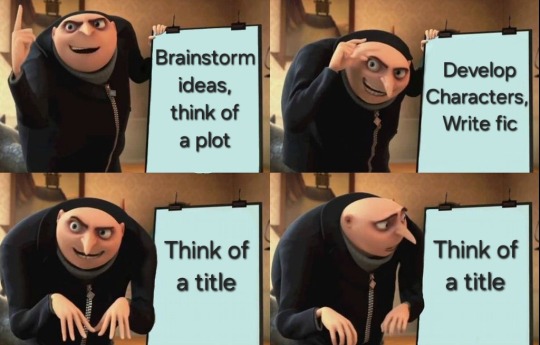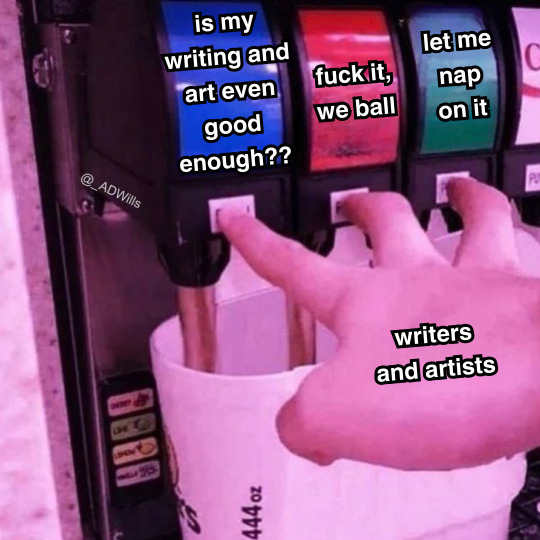I'm Reverie and I use she/they pronouns. This is my writing blog. I will keep track of my wip here and also reblog memes. :)
Don't wanna be here? Send us removal request.
Text
When you've been a writer for long enough, commas become more of a spiritual practice than a grammatical one.
Could I explain the actual rules of how they’re used? Absolutely not.
Do I rely on sensing a tremor in the force to tell me where to use them? Yes and this has never failed me even once.
25K notes
·
View notes
Text
Sunlight Over The Cliff's Edge
The cliff edge sat high above the clouds. At the end of a long mountain ridge, it presided over a deep canyon miles below. Atop it, dark green grass swayed gently in the soft, whistling breeze blowing sweet scents across the mountaintops. The sun, so close one could almost touch it, breathed warmth onto the ground and painted the billowing clouds in radiant golden light. Birds soared by the edge of the cliff. They called to each other as they swooped and spun through the air in mesmerizing patterns. A large rock lay a short distance from the edge, covered in lichen and cracks.
Embedded in this rock was an old sword. Rust and stains tarnished the ancient metal, which had shone a polished silver long ago. The hilt, made of darkened gold and leather, was similarly weathered. A piece of fraying red fabric tied to the end of the grip waved in the wind like a flag.
Near the rock, a skull, yellowed and dirty, rested on the ground. No other bones were with it, all having been scavenged by animals or blown away by the wind. A crown sat lopsided on top of the skull. Once regal and magnificent, the crown, encrusted with faded, cloudy gems, appeared the same rusted and stained gold as the hilt of the sword.
Both the sword and crown belonged to an elderly king who spent his final moments on this very cliff. Long forgotten by time and history, his skull and possessions were the only remains of his existence. In ages past, he ruled a nearby kingdom that had now fallen into ruin, vanished into obscurity much like himself. His people called him mighty. They called him brave and honorable. Wise and kind. He, however, thought himself none of those things. The crown weighed heavy upon his head, and, ever since boyhood, he wished to be anything but what he was—the king. Destiny itself dictated this, yet he wanted something different.
As a young prince, Cyril Lancaster wanted to touch the sun. He knew the sun had once touched him because of his auburn hair and the freckles scattered across his face. And so, when not gallivanting around the castle avoiding his studies, he was on the cliff bathing in sunlight. He spent hours up there talking, having many one-sided conversations with nobody to hear his words aside from himself. He didn’t care about that, though, speaking both animated and melancholic soliloquies regardless. Besides, the sun was there to hear everything, and to him, that was what mattered most.
Cyril always sat on the edge of the cliff, his legs dangling over the abyss. Despite the buzzing danger and nervous energy in his veins, he enjoyed the thrill of it, only paying attention to the warmth on his skin. Sometimes, he would stand on the very ledge and reach up as far as he could, balancing precariously on his tiptoes with one arm extended toward the sun. All of these attempts to touch it failed, every one ending with him almost tumbling over the edge. And yet, every time, he tried again.
“Just a little further,” he would say before losing his balance and falling to the ground.
Every time the prince failed, he believed he was getting closer to achieving his dream. If he could just touch the sun, he’d be free. But, as the years passed, he never managed to do it.
When the king died, it was the end of Cyril’s world. As the firstborn, it was his duty, his birthright, to take the throne. He was the rightful heir, although he never wanted to be. Even so, he accepted the crown graciously and began his rule. At first, he tried to continue the habit of going to the cliff, but soon enough, the responsibilities of being king became too much, and he was forced to leave it behind. Every day, he would look out his windows at the sky longingly before returning to his duties. Yet, from time to time, he had no work to be done, no obligations.
Those were the days he could go to the cliff’s edge. Those were the days he was happiest. Despite the weariness in his eyes and the frown lines between his brows, he came upon the precipice with a smile and looked up at the sky. He still wanted to touch the sun, but he wasn’t a boy anymore; his hair was greying at the temples, and clear signs of aging showed all across his face. He could no longer afford to be reckless like he was in his youth. So, he no longer sat on the edge of the cliff. He no longer stood on very ledge, reaching out to the sun with all his might. Instead, he sat on top of the large rock and settled for staring up wishfully at the blinding light.
One thing didn’t change, however. He talked. Still to nobody except himself and the sun. Except now, he rarely spoke animatedly about anything; all of his words were filled with a gut-wrenching exhaustion. Many times, he looked up with teary eyes despite the smile on his face and asked for help.
“Please, I’m so tired…” he would say, wiping a stray tear from his cheek before laughing weakly at his own ridiculousness.
The sun could not do anything for him and he couldn’t just walk away from his duties as the king. The sun was freedom, but it was too late for him.
Eventually, Cyril stopped going to the cliff altogether, his obligations as king becoming absolute. War was brewing, and he had no time for anything else, let alone for the cliff. And as the years passed, as problem after problem came up, he forgot about the cliff, about his dream. Of course, he never stopped yearning for it. Other things became more important, so he left it as just what it was—a dream.
For years, it remained that way. Until, one particularly windy day, he staggered onto the cliff, breathing ragged and panicked. Clutching at his stomach, he slumped against the rock and watched the path behind him intently. Far away, one could hear the shouts and cries of men fighting and the clang and screech of metal against metal, but right there, it was peacefully quiet. Cyril let out a relieved sigh once satisfied nobody had followed him. With a resigned look, he turned around and unsheathed his sword. Maneuvering onto the rock, he drove it into the stone with a grunt, loud and pained. Grey hair fell around his wrinkled face as he breathed heavily, sliding down off the rock before collapsing to the ground in front of it.
Blood gushed out of a wound in his stomach. He ignored it, staring up into the sky like he did in his younger days instead. He just wanted one more look at the sun before he died. He knew it was coming no matter what he tried. Soon enough, his eyes became heavy, and a sleepiness overtook him. His breathing slowed to a halt, and his body went limp. Before his eyes closed for the last time, though, a humanoid figure appeared at the very edge of the cliff.
The figure blazed a bright golden light, illuminating the entire cliffside. It had no defining features aside from flowing long hair. It began to walk toward Cyril, reaching out a hand. As it got closer, it became harder for Cyril to look at, the light almost blinding. And yet, the light seemed familiar to him. It felt safe. It felt warm. It felt free. Somehow, he knew it would not hurt him. When the figure grabbed his hand and pulled his spirit from his body, he did not flinch.
“Do not worry,” it said with a harmonic voice, leading him away from the edge of the cliff. “You are free.”
Finally, Cyril thought, I touched the sun.
#short story#writing#writers on tumblr#writblr#fiction#fantasy#just a fun little short story i wrote for a class
2 notes
·
View notes
Text
When the truly ancient gods were rediscovered, they didn't seek vengeance on a world that had forgotten them - rather, they were happy that the humans they were so fond of remembered them once again after untold millenia of loneliness.
#i am writing a short story that is exactly this right now#it's for a writing contest#writblr#writers on tumblr#writing prompt#short story
9K notes
·
View notes
Text
Hurt/Comfort Dialogue Prompts
Part V
"I need to know that you are okay."
"There is nothing I appreciate more than your comfort."
"You're an angel. You truly are."
"I will always be right here."
"There is no problem we can't fix."
"I know it hurts right now."
"Please, don't blame yourself. I's not your fault."
"I'm right here, I won't leave you."
"Give me your hand. You're safe with me."
"Don't worry about anything now."
"The hurt is just temporary."
"I'm here now, so just let go."
"Please, I need you to calm down."
"I'm not going anywhere. I'm staying right here."
"I will make it alright. I promise."
Hurt/Comfort Masterpost
If you like my blog and want to support me, you can buy me a coffee or become a member! And check out my Instagram! 🥰
3K notes
·
View notes
Text
Want simple tips to heavily improve your skills with character voice??
(📝Note: character voice is the way you convey your character's personality though their pov or dialogue when you write. No two characters speak the same📝)
I speak from experience when I say character voice is hard to get right. Characters, like people, have lots of layers that affect the way they see the world around them and how they interact with other characters. That's why character voice is so important in stories, and why if you write it in a compelling and effective way it will hook people into your story. I hope you learn something new in this post!!
When writing character voice, there's a list of things that you should take into account:
Where are they from? Their past and what they've lived plays a huge part in character voice. Maybe your character grew by the ocean, and so they compare things from the present to the beach, the rocks or the sea itself. You will rarely read about a sailor that is an expert in pants and compares scents to flowers. They might, instead, talk about how a house smells like the wet wood of a ship.
Think about how their personality shapes their language. If they are insecure, they might end most of their sentences with "isn't it?" or "right?" and ask a lot of questions, whereas if you have a confident character, you might find them saying things like "we should do this" or "that will be fun" instead.
What their "lense" is. This is more of an ethic aspect of the character. What have they learn it's okay, and what do they find uncomfortable? Would they find it gross if their friend left laundry on the floor?
Give them special traits (both for dialogue and narration). Maybe character A quotes a lot when they narrate and uses long paragraphs, or maybe B speaks about their past a lot and uses popular sayings. Personally, one character of mine has the tendency to repeat himself when he speaks, as in "yeah, yeah, I'll do it" or "no, no, no. Never" because he is really enthusiastic, and it fits really well with his character.
Pay attention to how they would talk about themselves. Maybe your character doesn't like people to know they're sad because it makes them feel vulnerable, so they will just say they feel annoyed or don't want to talk in that moment. This also means that they will not tell the reader something they are not comfortable saying in the first place.
How is their education? Education is also very important in this context. Did they went to university and have a rich vocabulary and structured sentences, or where they rised in a little farm far from town? You can also play with both a bit: maybe your character did go to university, but maybe they also came from a low income family, and characteristic of both things merge when they talk. Example: long, structured, sentences but a simple and sight forward vocabulary.
That's all for now and happy writing!!
Other tips for writers: previous | next
3K notes
·
View notes
Text
Daydreaming about my book:
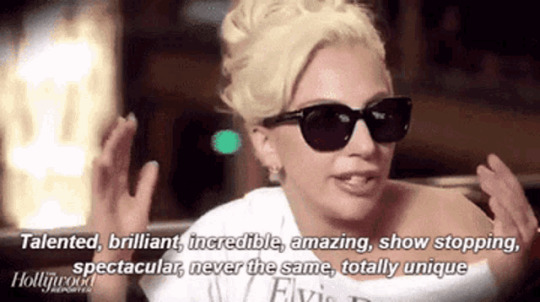
Writing my book:
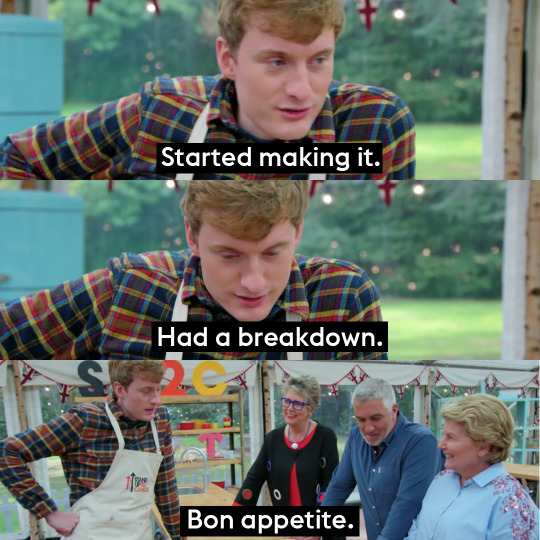
34K notes
·
View notes
Text
"I should write" *looks at memes about writers procrastinating writing instead*
6K notes
·
View notes
Text
Late night writing
Me, tired as shit: *leans in closer to laptop* is that dirt or a period?
Me: *wipes screen*
Me: It's a period
1K notes
·
View notes
Text
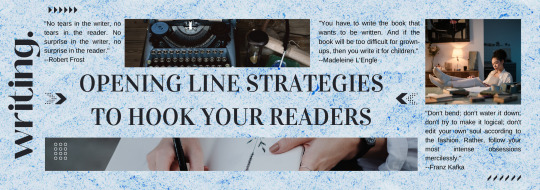
Writing Strong Opening Lines
This is the kind of information your first line should provide:
the name of the character (the speicifcity creates and illusion of reality from the get-go)
Notify that something bad is about to happen.
Provide a feeling of motion (it doesn’t neccessarily have to be the character moving)
Talk about a (small) disturbance to the character’s everyday life.
Types of Novel Openings
Action (in medias res)
Jump into the story with no delay - have something interesting happening.
“They threw me off the hay truck about noon."
2. Dialogue
Show conflict between the characters speaking.
“Isn’t it true you ahve a motive to lie?” / “Excuse me?”
3. Raw Emotion
Make readers sympathize with the MC, who is experiencing a strong, universal emotion (like sadness, anger, etc.).
“I do not look. I don’t ask where. I don’t because Annie’s mother died seven months ago. I stand motionless in the line, looking just like everyone else except for the hot tears that have begun to sting my eyes.”
4. Look-back Hook
Suggest that there is a not-to-be-missed story that’s about to be told
“The terror, which would not end for another twenty-eight years — if it ever did end — beganm, so far as I can tell, with a boat made from a sheet of newsppaer gloating down a gutter swollen with rain”
5. Attitude
When using first-person narration, show some attitude and unique voice.
“If you really want to hear about it, the first thing you’ll probably want to know is where I was born, and what my lousy childhood was like, and how my parents were occupied and all before they had me, and all that David Copperfield kind of crap, but I don’t feel like going into it, if you want to know the truth.”
6. Prologues - entice the reader to move to chapter 1
Action Prologue: Start off with some big scene, often involving death
Framing a story - give the reader the view of a character about to look back and tell the story.
The teaser - present a scene at the beginning that will happen later on in the book
If you like my blog, buy me a coffee! ☕
Reference: <Write Great Fiction: Plot and Structure (techniques and exercises for craftin a plot that grips readers from start to finish)> by James Scott Bell
1K notes
·
View notes
Text
"I thought about turning around to apologize, yet I ultimately dismissed the idea, wanting to be alone. He was the one who needed to apologize the most anyway. So, I continued forward sniffling and wiping tears from my eyes occasionally until it was time to go back to the mortal realm. I waited for a while hoping he would come after me to apologize before I left.
He never did."
I'm shamelessly stealing this from twitter, but writers !! Quick, reblog with the last line or two that you wrote, no cheating.
#writeblr#writers on tumblr#writing#unedited#first draft#sorry if it reads weird this part hasn't been edited yet#man i haven't written for months#this is the last thing i wrote back in december
1K notes
·
View notes
Text

Surely if I look at a blank doc long enough I'll have a story, right? RIGHT??
416 notes
·
View notes
Text
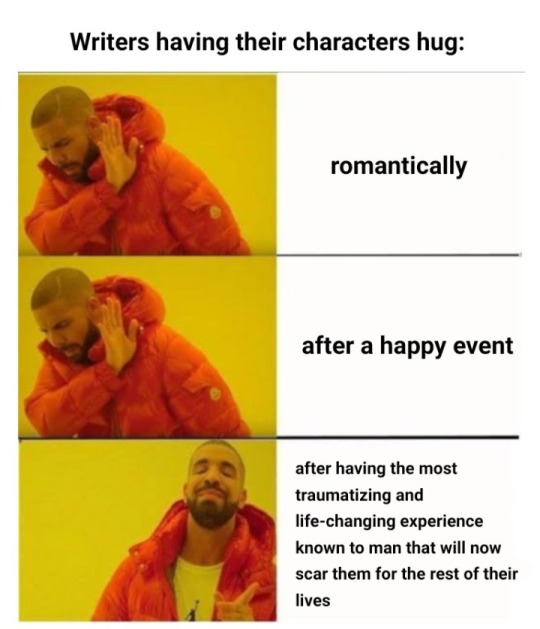
This came to me in a vision and now it's everyone else's problem
1K notes
·
View notes

